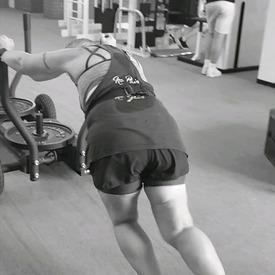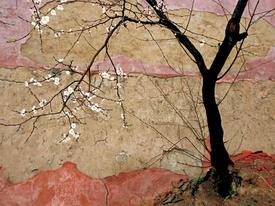No gallbladder=no salad???

amberlelynn
Posts: 9 Member
Ok, so I had my gallbladder taken out. The surgeon said that since the gallbladder is a crucial part of breaking down raw veggies, I needed to stay away from raw veggies and salad because I won't digest them correctly and could eventually cause a blockage from the raw veggies/salad. I have a friend who had her gallbladder out 10 years before I did who said she never heard of that and she eats salad all the time with no problem...anyone else had their gallbladder taken out and received the same advice I got?
3
Replies
-
I was not given that advice when I had mine out and I haven't had any problems with it. Post-gallbladder issues seem to differ for everyone. I don't have any problems anymore unless I eat an obscene amount of fat in one meal, but I had some issues early on with higher fat meals that cleared up right away. I routinely eat a big salad or half a bag of raw baby carrots without an issue. I think the only advice I really got post-surgery was to avoid anything that gave me issues and eat whatever I wanted that didn't.4
-
I had my gall bladder out 25 years ago - never heard this , never had any problems with fruits and vegetables. High fats can cause minor problems for me.2
-
I had mine out almost 20 years ago, and I've never heard of this.1
-
My OH had his gall bladder out around 5 years ago and was told to avoid high fat meals (for a while), not salads. He eats salads no problem.2
-
Wife has had GB out for 5 years. She had to eat low fat for awhile (it seems like maybe 2 months, or 3) but there were no other restrictions after she was past recovery. She was on an "easy" diet for 2 weeks or so though. Maybe the surgeon was talking about short term recovery not long term diet.1
-
The gall bladder helps you digest fat.6
-
The gall bladder stores and transports bile from the liver to the stomach/intestines. Bile is used in the process of digesting lipids (fats). Don't know what that has to do with eating raw veggies...4
-
Like the others, I was told to keep fats lower for a while, then reintroduce them slowly. I've never heard or read anything about the gallbladder being involved in digesting veggies - it's involved in digesting fats.
I eat anywhere from 5 to 20 servings of fruit and vegetables daily, including large salads and many other raw veggies (often hundreds of grams at a time) and have never had any problem digesting them post-gallbladder-removal.1 -
Bile is responsible for digesting fat. Some people need to limit their fatty food intake after having their gallbladder out. Some people can eat whatever they want. There is no reason to limit vegetables. I work in the ER. I have patients with gallstones pain coming in regularly.1
-
I've never heard of that for gallbladder removal. I'm on low fiber/low fat because of Gastroparesis and Crohn's but it jas nothing to do with my gallbladder1
-
What?! Mine has been out for nearly 13 years and raw vegetables digest best for me. Spicy food is terrible for me as well as fatty food. I don't even remember getting any nutritional advice from my surgeon. He did the surgery I went for one post op where he took out the staples and never saw him again.1
-
I had mine out 22 years ago.

I was given zero dietary advice, but learned quickly high fat meals caused issues. I have never problems with anything else.1 -
Yep same here. I had mine out about 9 years ago. Was never told anything like that (and it doesn't appear medically sound since bile is used to digest fats) and I routinely eat fresh veg and salads with no probs. If I eat too much cheese or other high fat foods I feel nauseous. But that's it. Livestrong says "ensuring that you consume at least four servings of fruits and vegetables and four servings of breads and cereals daily is recommended by the University of Wisconsin School of Medicine and Public Health, especially after surgery. Another benefit of including foods that are high in fiber is that it can improve the movement of food through your digestive system and help to reduce bloating." Which is fairly much what all sites say on the topic.0
-
Really?? Well that's a new one on me, I had my gallbladder out almost 30 years ago and while I struggle with high fat foods (and meat makes my ibs flare), as a vegetarian I'd be in trouble if I couldn't eat lots of veggies.0
-
Are you sure your doctor has a license? In medicine? The gall bladder has very little to do with digesting vegetables. Your gall bladder stores the bile our bodies use to digest fats. When it's removed, the bile just goes directly from your liver to your intestines (I forget which set). Last I checked, the kinds of vegetables we normally put in salads (lettuces, tomatoes, carrots, spinach, cucumbers, onions, etc., are very low in fat.3
-
Same as every other post, mine was out in January 2010 and never heard of that. I eat tons of raw veggies. Eat away!!0
-
Be had mine out for about 10 years and no problems with raw veg. Now I did try a keto diet and had to quit because can’t digest all that fat. I eat salads nearly every day no issues.0
-
I had mine out 5 years ago I've never heard of this! Like the other said, the bile normally stored in it is used to digest fats - I wouldn't describe veg as fatty by any means. I got no dietary info at all after my surgery.
I'm not 100% sure I've fully worked out my diet yet as I do frequently end up with "the runs". I suspect that's partially down to my eating schedule though and then suddenly eating a large meal instead of smaller ones through the day.0 -
I still think the surgeon didn't mean it past a brief recovery period which is similar to what my wife was told. She ate a lot of soup and other easy foods for 2 weeks post-op. It might have been overly cautious but there was no harm in it.0
-
I had mine taken out and the only thing I have a problem with is fatty foods and grease.0
-
Ok, thank you. I thought it sounded backwards, but I don't know many people who have had their gallbladder out, so I didn't know if it was common advice or not. Thank y'all!3
-
I can't wrap my head around the reasoning for this advice unless you have other medical conditions that would make it hard to digest raw veggies. The gallbladder's function is to store bile, which helps digest fat. Without your gallbladder, your liver still makes the same amount of bile, but it goes into your small intestine at a constant rate instead of having some of it stored away. Your body therefore no longer has the ability to release more bile in response to eating a high-fat meal. This is why some people still have trouble digesting a high-fat meal for a little while after they have their gallbladder removed, until the body adapts to not getting extra bile. However, ultimately the body should adapt and be able to digest fat just fine.
I've heard the "no raw vegetables" advice for people who have IBS or other conditions that make it hard for their bodies to handle extra fiber. If you don't have any conditions like that, the only thing I can come up with is that maybe your surgeon was concerned about having extra fiber (and possibly more gas) in your digestive tract, since that might make healing a bit less comfortable...and that logic seems like a stretch to me. I didn't get this advice after having my gallbladder removed and I don't understand how it would be relevant to not having a gallbladder.0 -
No gallbladder in me...and I am eating a nice green salad right now. Yup I feel fine...0
-
I was told to limit fried foods, but I wasn’t told anything about raw veggies or fat. Admittedly, my doctor kind of sucked though. I would think you’re fine with veggies.0
-
Had mine out I eat salada and raw veggies no problems0
-
Had mine removed 3 weeks ago, and the only thing I was told was to go easy on foods high in fat until I saw how my body tolerated them without a gallbladder. I eat a lot of salad with no problems whatsoever. So far just seems like the foods I had trouble with before surgery, are the foods I still have trouble with. I had no clue I had gallbladder problems until about 14 hours before my surgery.0
-
I've had many issues post cholecystectomy, but eating salads has never been one of them. As someone else said, the gallbladder stores the bile made by the liver. That bile helps digest fat. With the gallbladder removed, there is basically a steady stream of bile. Some people have difficulty digesting fats because they aren't getting that rush of bile, but I've never heard of anyone having difficulty digesting salads for that reason. The ONLY connection that I can think of is perhaps difficulty absorbing your Fat Soluble Vitamins (A,D,E, and K) due to issues digesting fats, but even that is a stretch.1
-
void These Foods with Gallbladder Problems
Eggs (Research showed that eggs caused symptoms in up to 95% of patients. Try substituting flax seed gel in recipes that require eggs for the "glue". That's 1 TBSP ground flax seed to 3 TBSP hot water. Let cool and add.)
Pork
Onions
Fowl (turkey, chicken)
Dairy (milk, cheese, cream, butter)
Gluten (wheat, barley, rye, spelt, kamut, etc.)
Beans and legumes
Oranges, grapefruit
Chocolate
Nuts
Trans fats, Hydrogenated, partially-hydrogenated oils
Margarine
Fried Foods
Saturated fats (even coconut oil until feeling better)
Red meats
Coffee, regular or decaf - except for acalculous biliary dyskinesia*
Spicy foods
Ice cream
Black tea
Alcohol, beer, wine, liqueur
Fruit juice and sugary drinks
Tap water
Turnips
Cabbage, cauliflower
Oats (for some people)
Corn
Avoid all artificial sweeteners, sugar, preservatives, refined and bleached foods (like white flour)
Avoid smoking if possible as it can exacerbate the symptoms.
Avoid all possible food allergens.
14 -
Helpful Foods You can take all these foods and make "SOUPS AND STEWS". I have learned the hard way~ I grind and use a food processer to break down all my food including "MEATS" "NUTS". I can eat any of these but only if I take the effort and break them down so my own body can digest them. Its has taken me a YEAR~ to figure this all out but I am doing great and down 70lbs in 5month. Just Dice, grind, blend, you can even use a blender for all your fruits. You can Cook every Fruit and Veggie and Meats and Nuts etc. Breaks it down and you will be fine.
Beets
Cucumbers
Green beans - are NOT the same as dried
Okra
Sweet potatoes
Avocados - a good way to get needed fats directly from food
Vinegars all types
Garlic helps with liver cleansing but not processed types like flakes or powder. Some people have difficulty with it but is usually ok and even helpful. Just pay attention to your own body with this one.
Radishes
Shallots
Tomatoes - ripe
cold water fish- salmon, trout
Lemons (lemon juice in the morning with hot water helps to clean the liver)
Grapes and fresh organic grape juice
apples, berries, papaya, pears, pomegranates
watermelon
Omega 3 oils like flax or hemp. Use these with fresh lemon juice or vinegar on your salads. DO NOT COOK flax oil.
Vegetable juices - Beet and cucumber are especially helpful to gallbladder You can add other green vegetables like tender baby greens, swiss chard, dandelion greens, beet greens, celery, carrots, ginger, tumeric -- avoid the cabbage family)
Avoid all fruit juices except organic grape juice and organic apple (fresh, self-juiced is best). It is wise to dilute with water.
All the vegetables listed above for juicing are good. Use baby mixed organic greens for salads and avoid the bitter greens for now.
Fiber such as found in fruits and vegetables
7 -
void These Foods with Gallbladder Problems
Eggs (Research showed that eggs caused symptoms in up to 95% of patients. Try substituting flax seed gel in recipes that require eggs for the "glue". That's 1 TBSP ground flax seed to 3 TBSP hot water. Let cool and add.)
Pork
Onions
Fowl (turkey, chicken)
Dairy (milk, cheese, cream, butter)
Gluten (wheat, barley, rye, spelt, kamut, etc.)
Beans and legumes
Oranges, grapefruit
Chocolate
Nuts
Trans fats, Hydrogenated, partially-hydrogenated oils
Margarine
Fried Foods
Saturated fats (even coconut oil until feeling better)
Red meats
Coffee, regular or decaf - except for acalculous biliary dyskinesia*
Spicy foods
Ice cream
Black tea
Alcohol, beer, wine, liqueur
Fruit juice and sugary drinks
Tap water
Turnips
Cabbage, cauliflower
Oats (for some people)
Corn
Avoid all artificial sweeteners, sugar, preservatives, refined and bleached foods (like white flour)
Avoid smoking if possible as it can exacerbate the symptoms.
Avoid all possible food allergens.
Someone who is avoiding eggs, pork, poultry, dairy, gluten, beans/legumes, red meats, nuts, fish (because it has saturated fat), and soy (because it is a possible allergen) . . . how much protein are they getting?
What is the source of this list?2
This discussion has been closed.
Categories
- All Categories
- 1.4M Health, Wellness and Goals
- 398.2K Introduce Yourself
- 44.7K Getting Started
- 261K Health and Weight Loss
- 176.4K Food and Nutrition
- 47.7K Recipes
- 233K Fitness and Exercise
- 463 Sleep, Mindfulness and Overall Wellness
- 6.5K Goal: Maintaining Weight
- 8.7K Goal: Gaining Weight and Body Building
- 153.5K Motivation and Support
- 8.4K Challenges
- 1.4K Debate Club
- 96.5K Chit-Chat
- 2.6K Fun and Games
- 4.8K MyFitnessPal Information
- 13 News and Announcements
- 21 MyFitnessPal Academy
- 1.6K Feature Suggestions and Ideas
- 3.2K MyFitnessPal Tech Support Questions
























